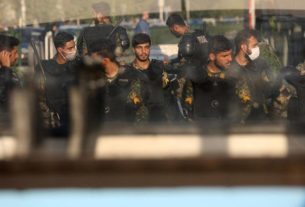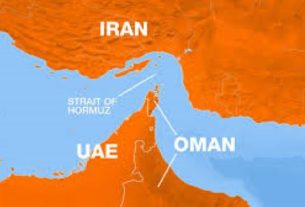WASHINGTON/ADEN, Yemen, Jan – U.S. and British warplanes, ships and submarines launched dozens of air strikes across Yemen overnight in retaliation against Houthi forces for months of attacks on Red Sea shipping that the Iran-backed fighters cast as a response to the war in Gaza.
Witnesses confirmed explosions at military bases near airports in the capital Sanaa and Yemen’s third city Taiz, a naval base at Yemen’s main Red Sea port Hodeidah and military sites in the coastal Hajjah governorate.
“These targeted strikes are a clear message that the United States and our partners will not tolerate attacks on our personnel or allow hostile actors to imperil freedom of navigation,” U.S. President Joe Biden said.
White House spokesman John Kirby said the strikes had targeted the Houthis’ ability to store, launch and guide missiles or drones, and that their impact was being assessed.
The Houthis, who have controlled most of Yemen for nearly a decade, said five fighters had been killed in a total of 73 air strikes. They vowed to retaliate and continue their attacks on shipping, which they say are intended to support Palestinians against Israel.
Shortly after 1500 GMT, the UK Maritime Trade Operations information hub said it had received reports of a missile landing in the sea around 500 metres (1,600 feet) from a ship about 90 nautical miles southeast of the Yemeni port of Aden. Three small boats were also reported to have neared the vessel.
The shipping security firm Ambrey identified it as a Panama-flagged tanker.
In Yemen, crowds gathered in cities. Drone footage on the Houthis’ al-Masirah TV showed hundreds of thousands of people in Sanaa carrying Palestinian and Yemeni flags and chanting slogans denouncing Israel and the United States.
“Your strikes on Yemen are terrorism,” said Mohammed Ali al-Houthi, member of the Houthi Supreme Political Council. “The United States is the Devil.”
The U.S. military said 60 targets at 16 locations had been hit using more than 100 precision-guided munitions.
In a poor country only just emerging from nearly a decade of war that brought millions to the brink of famine, people fearing an extended new conflict queued at petrol stations.
“There is a lot of worry that the fuel shortages will repeat themselves and food supplies will be scarce,” said Ali Ahmad, 52. “We are rushing to fuel our car and we bought flour and rice in case of any emergency because we are expecting the Houthis to respond and an escalation to take place.”
In Hodeidah, a resident who gave only his first name, Mahmoud, said troops were spreading through the streets and military vehicles were leaving barracks with security escorts.





